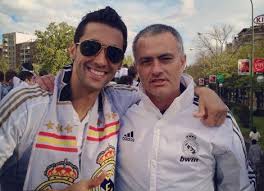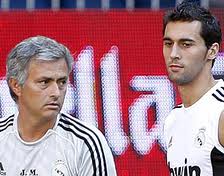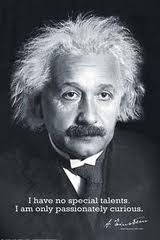Nadie puede negar hoy en día que los entornos cambian a velocidades nunca experimentadas. Hoy cualquier niño se reiría de la Ley de Moore, que dicta que la capacidad de los procesadores se dobla cada 2 años, y la pondría al nivel de esas cosas que uno oyó y la evidencia nunca constató.
En este nuevo esquema social todos citamos el cambio como salida de un presente para nada confortable. Probablemente Heráclito nos avista desde el Olimpo con una pícara sonrisa, de esas que denotan una satisfacción por lo primeramente pronosticado y posteriormente cumplido. Sí Heráclito, tienes razón: lo único que permanece inmóvil es el cambio. Pero yo añadiría una cuña. Lo único que permanece inmóvil es el cambio y el sistema de incentivos de nuestras organizaciones. Y precisamente estos son los que nos llevan a no cambiar. ¿Paradoja? Vayamos a partes.
No hace falta ser Punset para saber que cualquier conducta se origina mediante una emoción. Comes porque tienes hambre, besas cuando atisbas a tu amada sonrisa y trabajas porque te pagan. Adentrémonos un poco más en la última premisa. Trabajamos para cobrar el máximo, o en lenguaje empresarial, para lograr la máxima remuneración: el fijo más el 100% del variable. Esta cifra es la que nos provoca más emociones, esa cifra es la que nos permite autodefinirnos como profesionalmente excelentes.
Disponemos de datos sobre las remuneraciones de los Consejos de Administración de las empresas líderes cotizadas, también disponemos de los resultados de las elecciones; y a juzgar por los resultados, ambos denotan que teóricamente estos profesionales han realizado excelentemente sus trabajos. Sin embargo, estas remuneraciones no están alineadas con los datos macroeconómicos de los principales países europeos o los resultados de grandes compañías. En palabras llanas, no se consiguen objetivos pero se sigue cobrando.
 * Resultado respecto misma variable en el año anterior.
* Resultado respecto misma variable en el año anterior.
Y ya no hablo de la clase política porque creo que el concepto de remuneración variable no se estipula en ningún cargo público…
A ellos no les incentiva el bien social, ni las lágrimas de 6 millones de parados en España, ni los cierres de 19 hospitales públicos… Los responsables (digo responsables en su sentido literal, de aquellas personas que tienen legitimidad para incidir en estos datos y no en la acepción de culpables) son meros trabajadores que realizan muy bien su trabajo.
La mente humana no responde a palabrerías ni altivas promesas. Sino a necesidades. Dirigir es un trabajo y aunque en tus estatutos esté, como en el caso del BBVA, la creación de valor a largo plazo y velar por la equidad interna y la competividad externa, en la mente se encuentra satisfacer la necesidad de lograr el mayor lucro por tu trabajo y el convencimiento que eres un gran profesional.
El actual sistema de incentivos para los altos directivos está obsoleto. No seamos utópicos, nuestros dirigentes son excelentes profesionales, consiguen sus objetivos variables sin saltarse la ley. Quizás es que su sistema retributivo no es el adecuado o no tiene como fin el beneficio de sus organizaciones.
Para avanzar en el nuevo mundo cabe realizar un ejercicio de valentía y cambiar las reglas. No sólo cambiar sino tener la necesidad de hacerlo.
El sistema de retribuciones de directivos debe incluir compromiso y coherencia, que eficientemente invoquen al cambio cuando se requiera. Más valioso es equivocarte que acertar. Y cuanto más compleja es tu labor profesional, más debes ver que te equivocas. Y sólo ves que te equivocas si personalizas y empatizas con el fracaso. ¿Cómo?
Imaginemos que se introducen variables en los cargos directivos como satisfacción del cliente, como el precio que tu consumidor paga por tus servicios, o como la tasa de paro que impera en el país… ¿Por qué? Porque estos son realmente los resultados que tus labores directivas conllevan y por estas debes ser retribuido.
Confucio dijo hace 2.500 años que “gobernar es rectificar”, Alexander Pope añadió que “rectificar es de sabios”; y yo concluyo que actualmente ni gobernamos, ni somos sabios. ¿Por qué? No tenemos la necesidad…
Kritikosum






